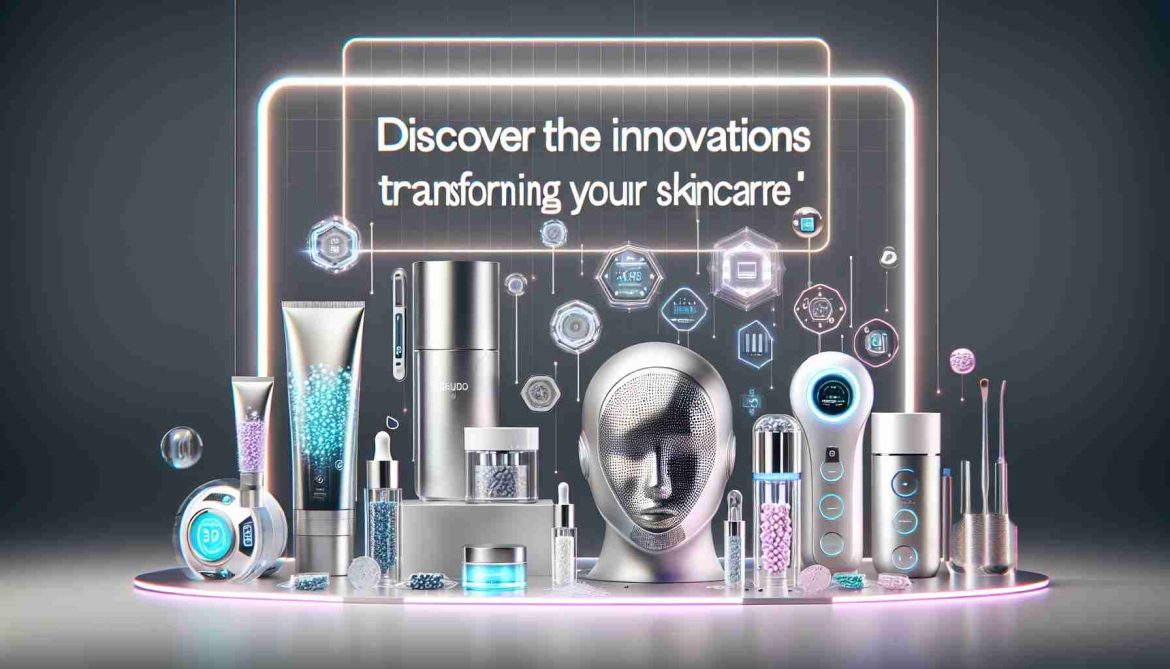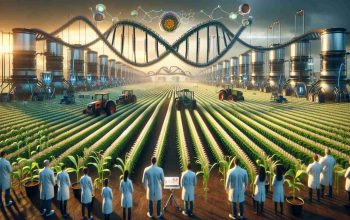Revolutionary Haircare and Skincare Solutions Are Changing the Game
In an era of innovation, K18 has launched Airwash, a cutting-edge dry shampoo that seamlessly blends a patented peptide with biotechnology. This advancement addresses common concerns including dryness and residue that often plague traditional dry shampoos.
Moreover, Future Society collaborates with biotech pioneer Ginkgo Bioworks and Harvard University to resurrect aromas from extinct flowers. By decoding their DNA, they create unique fragrances that marry science with traditional scents like bergamot and black pepper. This approach may serve as a breakthrough for consumers seeking focused skincare solutions for issues like sensitivity and aging.
Dr. Thivos Sokratous of Ouronyx highlights the promising impact of biotech in aesthetics. Micrografting hair treatments utilize stem cell extraction, effectively regenerating hair growth. He emphasizes that these biotechnological advances straddle the line between surgical and regenerative therapies, enhancing the treatment’s efficacy.
Additionally, the beauty industry is witnessing the emergence of dermal fillers crafted from biodegradable polymers. These new fillers are designed to gradually release active ingredients, offering more controlled treatments than ever before.
Advocates argue that biotechnology not only elevates product performance but also significantly reduces environmental harm. Traditional beauty production methods can be resource-intensive and damaging, but biotechnological processes often use renewable resources, leading to a more sustainable and eco-friendly industry. As the beauty world embraces these scientific advancements, the path ahead looks promising.
Innovative Beauty Trends: How Biotechnology is Shaping the Future of Haircare and Skincare
As advancements in biotechnology continue to evolve, the beauty industry is experiencing a significant transformation with innovative haircare and skincare solutions. New products emerging from these breakthroughs not only improve performance but also offer sustainable alternatives to traditional methods. Here’s a closer look at some of the most recent trends and developments in the sector.
Biotechnological Innovations in Haircare
The launch of Airwash by K18 is a testament to how biotechnology can change haircare. This patented dry shampoo contains carefully formulated peptides that effectively minimize dryness and residue while refreshing hair. Users are reporting that Airwash not only cleanses but also nourishes their hair, providing a dual function that is often missing from conventional dry shampoos.
Other innovations include the use of micrografting hair treatments. These involve the extraction of stem cells to promote hair regeneration, an area that Dr. Thivos Sokratous emphasizes for its ability to merge surgical and regenerative methods. This technique holds promise for those experiencing hair loss, offering a less invasive alternative to traditional hair restoration surgeries.
Unique Skincare Fragrances Derived from Nature
Future Society’s partnership with Ginkgo Bioworks and Harvard University opens new avenues in skincare with their unique approach to fragrance. By resurrecting the scents of extinct flowers through DNA decoding, they create unprecedented fragrances that can be mixed with existing skincare lines. This innovation not only adds an emotional layer to skincare but also addresses consumer preferences for authenticity and heritage in beauty products.
Biodegradable Fillers: The Future of Aesthetics
In the cosmetic realm, new dermal fillers made from biodegradable polymers are gaining traction. These innovative fillers are designed to gradually release active ingredients over time, allowing for more controlled and desirable treatment outcomes. Users can expect longer-lasting results, making these fillers a preferred choice for non-surgical enhancements.
Sustainability in the Beauty Industry
One of the most compelling advantages of biotechnological innovation in beauty is its potential for sustainability. Traditional manufacturing processes often consume large amounts of resources, from water to energy, and typically generate significant waste. In contrast, biotechnological processes leverage renewable resources and aim to minimize environmental damage. This shift towards sustainability is becoming increasingly important to consumers who are demanding eco-friendly and ethically produced products.
Insights and Predictions for the Future
As the beauty sector continues to embrace biotechnology, experts predict an influx of products that blend efficiency with sustainability. The integration of biotechnology offers a glimpse into a future where beauty products are not just effective but also environmentally conscious. Consumers can expect a rise in demand for patented formulas that harness natural resources responsibly while providing innovative solutions for hair and skin care challenges.
How to Choose Biotech Beauty Products
1. Research Ingredients: Check product labels for biotechnological components and their benefits.
2. Read Reviews: Look for testimonials regarding effectiveness and any environmental claims.
3. Evaluate Brand Commitment: Consider brands that actively promote sustainability and ethical sourcing.
4. Consult Professionals: Seek advice from skincare or haircare professionals familiar with biotechnology.
For those interested in exploring the future of beauty, the ongoing advancements in biotechnology present an exciting opportunity to find products that not only enhance your routine but also align with the values of sustainability and efficacy.
For more information on beauty innovations, visit example domain.



